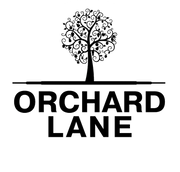
Why Is Organic Food More Expensive
As the demand for organic food continues to rise, so does the discussion surrounding its higher price tag. Many consumers wonder why organic food tends to be more expensive compared to conventionally grown alternatives. While the cost difference may discourage some individuals from choosing organic options, it is important to understand the factors that contribute to this price disparity. In this blog, we will delve into the reasons behind the higher cost of organic food and explore the benefits it offers.
Stringent Production Standards:
Organic farming practices adhere to stringent guidelines and regulations. Organic food employ methods that prioritize environmental sustainability, animal welfare, and natural inputs. These practices involve avoiding synthetic pesticides, herbicides, and genetically modified organisms (GMOs), and relying on organic fertilizers and natural pest control. The strict adherence to these standards increases the labor and management required, ultimately raising production costs.
Lower Yields:
Organic agriculture typically yields lower crop volumes compared to conventional farming. This is primarily due to the absence of synthetic chemical fertilizers and pesticides that promote rapid growth and protect against pests and diseases. Organic farmers rely on natural processes and methods, which may result in reduced crop yields. Lower yields translate to higher production costs per unit, contributing to the higher prices of organic food.
Longer Production Time:
Organic farming often requires a longer production cycle. Without the aid of synthetic growth enhancers, organic crops may take more time to reach maturity. Additionally, organic livestock farming involves providing animals with organic feed, ample space, and access to the outdoors, which can lengthen the time required for animals to grow and mature. The extended production time increases labor costs and further adds to the overall expense of organic food.
Certification Costs:
Organic farms and food processors must undergo rigorous certification processes to verify their compliance with organic standards. These certifications ensure that organic products meet specific requirements and are labeled as such. The certification process involves inspections, paperwork, and annual fees, which can be costly for farmers. These expenses are ultimately passed on to consumers, contributing to the higher price of organic food.
Limited Scale and Distribution:
Compared to conventional farming, organic farming practices are often applied on smaller scales. Organic farms typically require more land and space to implement practices such as crop rotation, natural pest control, and biodiversity preservation. The limited scale of organic farms and the specialized nature of their operations can result in higher overhead costs. Additionally, organic food distribution networks are not as extensive or efficient as conventional ones, which can increase transportation and handling expenses.

Benefits of Organic Food:
Despite the higher cost, many individuals choose organic food for its numerous benefits. Organic farming promotes environmental sustainability, reduces the use of synthetic chemicals, and supports biodiversity. Organic food is also believed to have higher nutrient content and better flavor. Furthermore, by purchasing organic products, consumers support farmers who prioritize sustainable practices and contribute to the long-term health of ecosystems.
OrchardLane: Crafting Organic Jams, Ketchup, and Sauces with Nature's Goodness
OrchardLane is a renowned producer of organic food products, specializing in delectable jams, ketchup, and sauces that are crafted with the goodness of nature. With a commitment to sustainable farming practices, OrchardLane ensures that every jar of their organic products is made using only the finest, high-quality ingredients sourced from organic farms. Their wide range of jams features luscious fruit flavors bursting with natural sweetness, carefully handpicked and cooked to perfection to preserve their rich taste and nutritional value. From classic flavors like strawberry and raspberry to unique combinations like blueberry lavender and mango ginger, OrchardLane offers a delightful array of organic jams to elevate your breakfast or snack time.
Their organic ketchup and sauces are meticulously prepared, using ripe organic tomatoes and a blend of aromatic herbs and spices, resulting in a bold, flavorful experience that adds a zing to your favorite dishes. Whether it's their tangy schezwan chilly sauce, pickled mango salsa, or savory pizza pasta sauce, OrchardLane's commitment to organic farming ensures that every product is free from synthetic pesticides, herbicides, and GMOs, allowing you to savor the authentic taste of nature while supporting sustainable agriculture practices. Indulge in the exquisite range of organic jams, ketchup, and sauces from OrchardLane and experience the true essence of organic goodness in every bite.
Conclusion:
The higher price of organic food can be attributed to the strict production standards, lower yields, longer production time, certification costs, and limited scale and distribution. Although it may be more expensive, organic food offers numerous benefits for consumers and the environment. By understanding the reasons behind the price difference, consumers can make informed choices about their food purchases, weighing the benefits of organic farming against their budget constraints. Ultimately, supporting organic agriculture contributes to a healthier and more sustainable food system.
